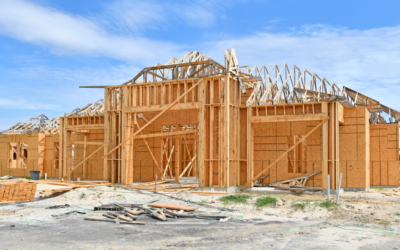There’s More to a Bubble Than Rising Home Prices

What truly causes a housing bubble and the inevitable crash? For the best explanation, let’s go to a person who correctly called the last housing bubble – a year before it happened.
“A bubble requires both overvaluation based on fundamentals and speculation. It is natural to focus on an asset’s fundamental value, but the real key for detecting a bubble is speculation…Speculation tends to chase appreciating assets, and then speculation begets more speculation, until finally, for some reason that will become obvious to all in hindsight, the ‘bubble’ bursts.
I have taken to calling the housing market a ‘bubble’.”
– Bill McBride of Calculated Risk calling the bubble back in April 2005
Where do we stand today regarding speculation?
There are two measurements that are used to determine the speculation in a housing market:
1. The number of homes purchased by an investor and
2. The number of homes being flipped (resold within a twelve-month period)
As compared to 2005, investor purchases are down dramatically (from 23% to 13%) and so is flipping (from 8.2% to 5.7%). McBride explains:
“There is currently some flipping activity, but this is more the normal type of flipping (buy, improve and then sell). Back in 2005, people were just buying homes and letting them sit vacant – and then selling without significant improvements. Classic speculation.”
What are the experts saying about speculation in today’s market?
DSNews recently ran an article which asked two economists to compare the speculation in today’s market to that in 2005-2007. Here is what they said:
Dr. Eddie Seiler, Chief Housing Economist at Summit Consulting:
“The speculative ‘flipping mania’ of 2006 is absent from most metro areas.”
Tian Liu, Chief Economist of Genworth Mortgage Insurance:
“The nature of housing demand is different as well, with more potential homeowners and far fewer speculators in the housing market compared to the 2005-2007 period.”
And what does McBride, who called the last housing bubble, think about today’s real estate market?
Sixty days ago, he explained:
“In 2005, people were just buying homes and letting them sit vacant – and then selling without significant improvements. Classic speculation. And even more dangerous during the bubble was the excessive use of leverage (all those poor-quality loans). Currently lending standards are decent, and loan quality is excellent…
I wouldn’t call house prices a bubble – and I don’t expect house prices to decline nationally like during the bust.”
Bottom Line
Speculation is a major element of the housing bubble formula. Right now, there are not elevated percentages of investors and house flippers. Therefore, there is not an elevated rate of speculation.
To view original article, please visit Keeping Current Matters.
Why Having Your Own Agent Matters When Buying a New Construction Home
Having a trusted agent on your side can make a big difference when it comes to buying a newly constructed home!
Don’t Wait Until Spring To Sell Your House
While spring is usually the peak homebuying season, you don’t actually need to wait until spring to sell.
2 of the Factors That Impact Mortgage Rates
If you’re looking to buy a home, you’ve probably been paying close attention to mortgage rates. Ever wonder why they change?
Will a Silver Tsunami Change the 2024 Housing Market?
The thought is that as baby boomers grow older, a significant number will start downsizing their homes, but will it happen this year?
Are More Homeowners Selling as Mortgage Rates Come Down?
While there isn’t going to suddenly be an influx of options for your home search, it does mean more sellers may be deciding to list.
Experts Project Home Prices Will Increase in 2024
Expected home price appreciation also means if you’re ready, willing, and able to buy, waiting just means it will cost more later.
3 Must-Do’s When Selling Your House in 2024
A real estate professional can help you with expertise on getting your house ready to sell.
3 Key Factors Affecting Home Affordability
Home affordability depends on three things: mortgage rates, home prices, and wages and they’re moving in a positive direction for buyers.
Why You May Want To Seriously Consider a Newly Built Home
Newly built homes are becoming an increasingly significant part of today’s housing inventory.
Homeownership Is Still at the Heart of the American Dream
Buying a home is a powerful decision, and it remains at the heart of the American Dream.









